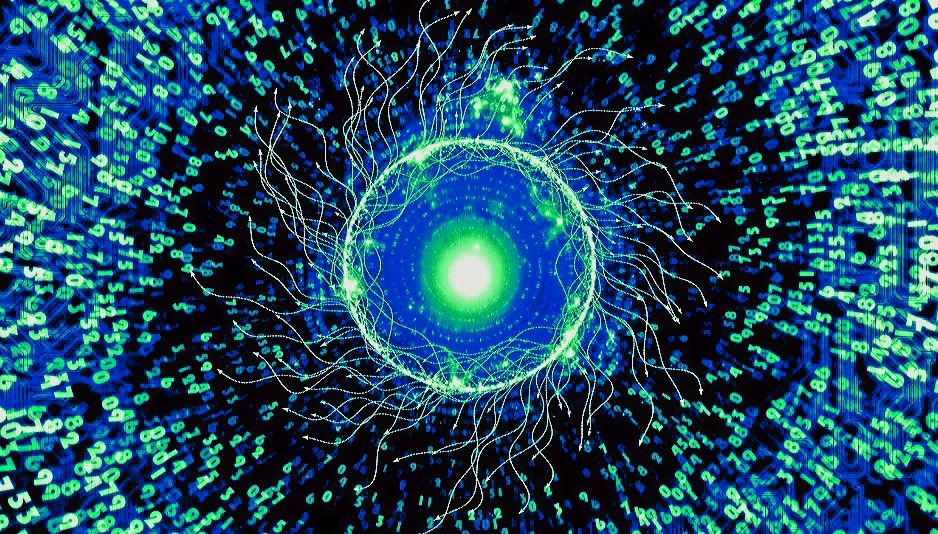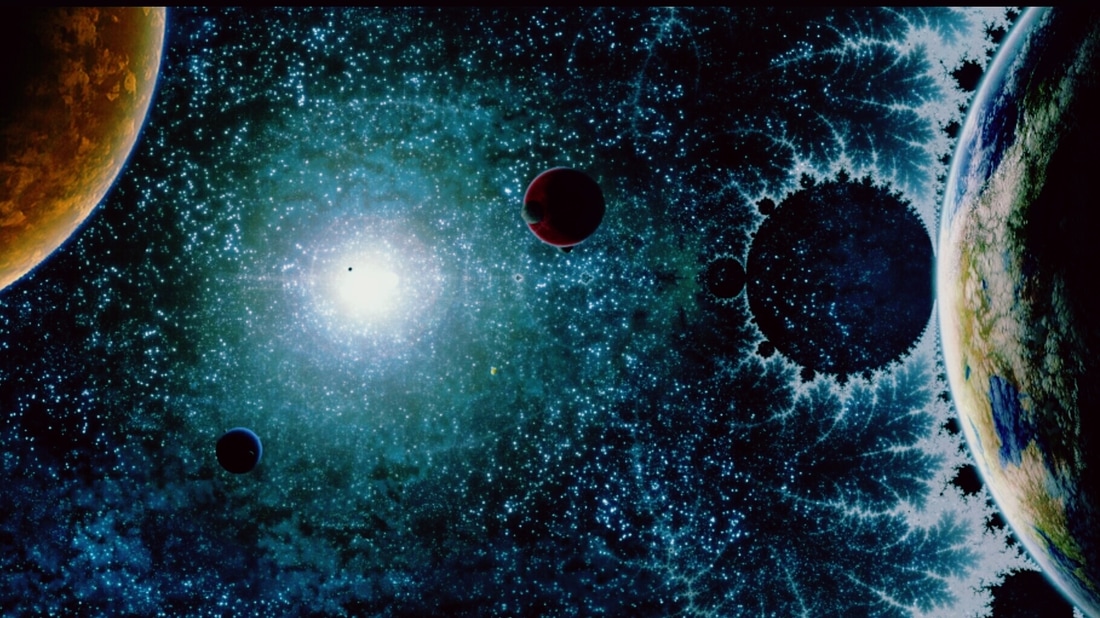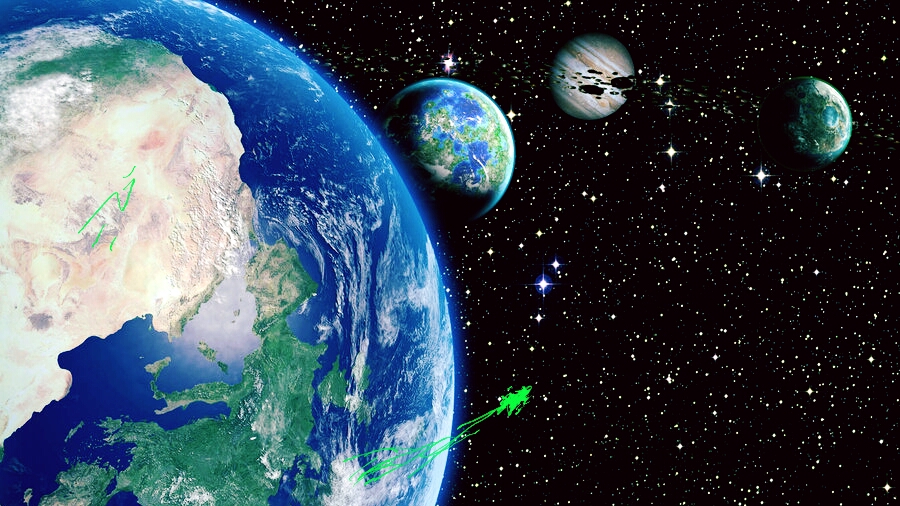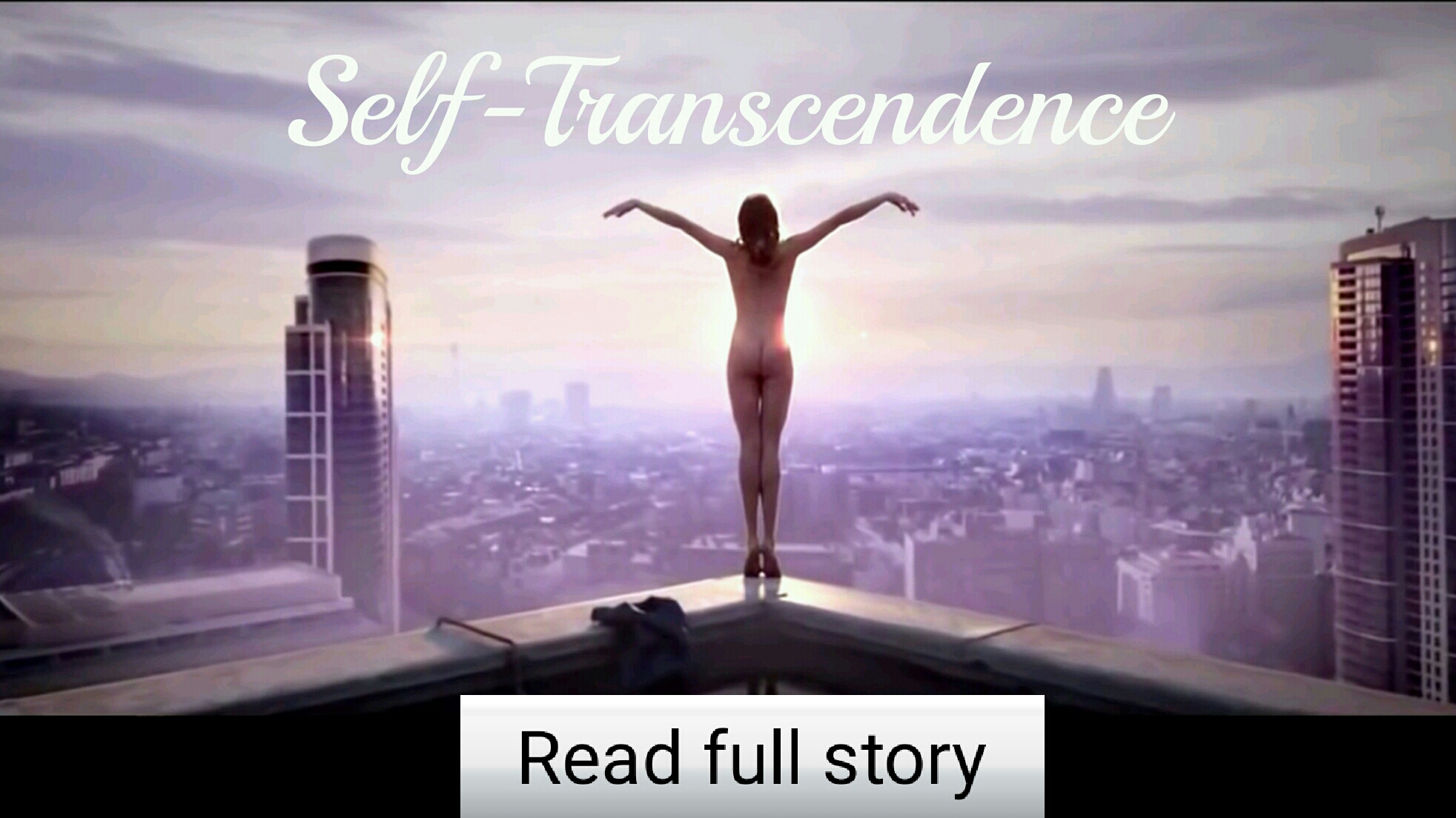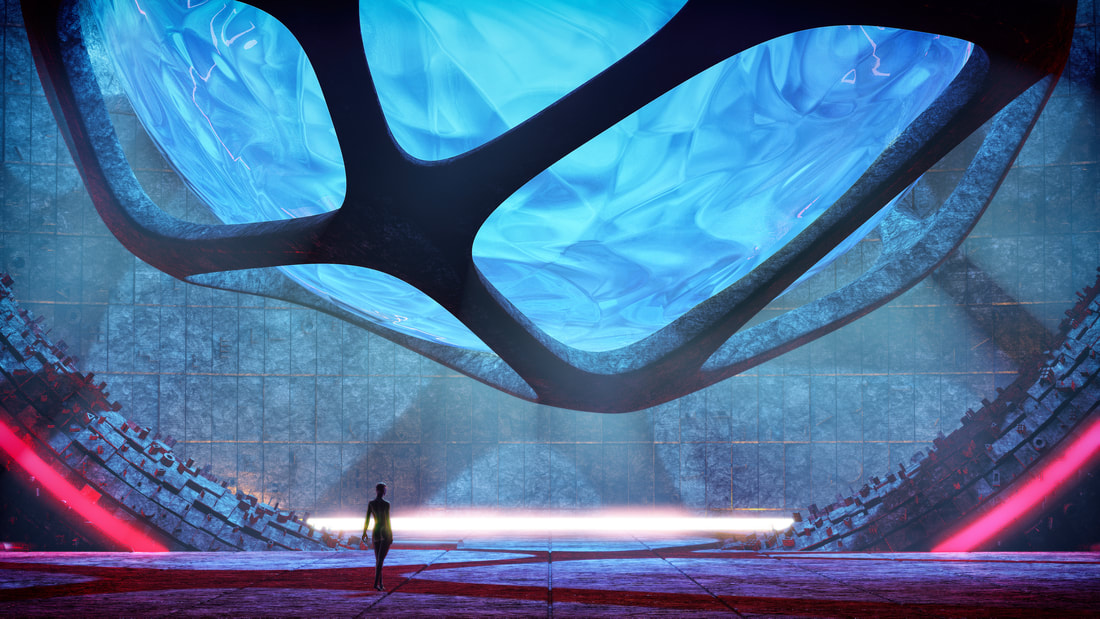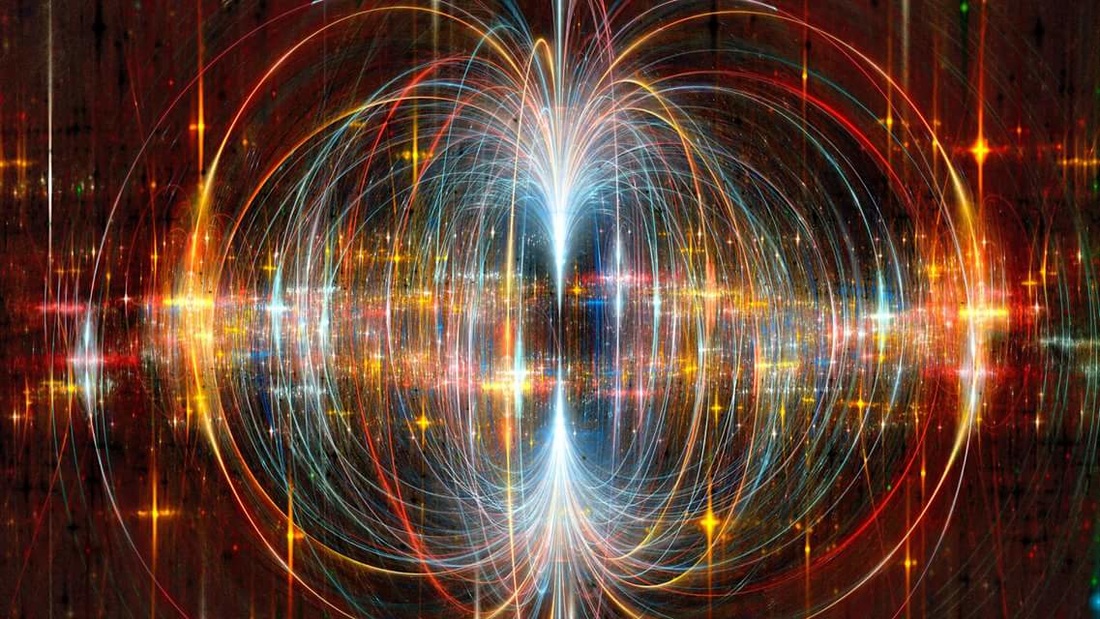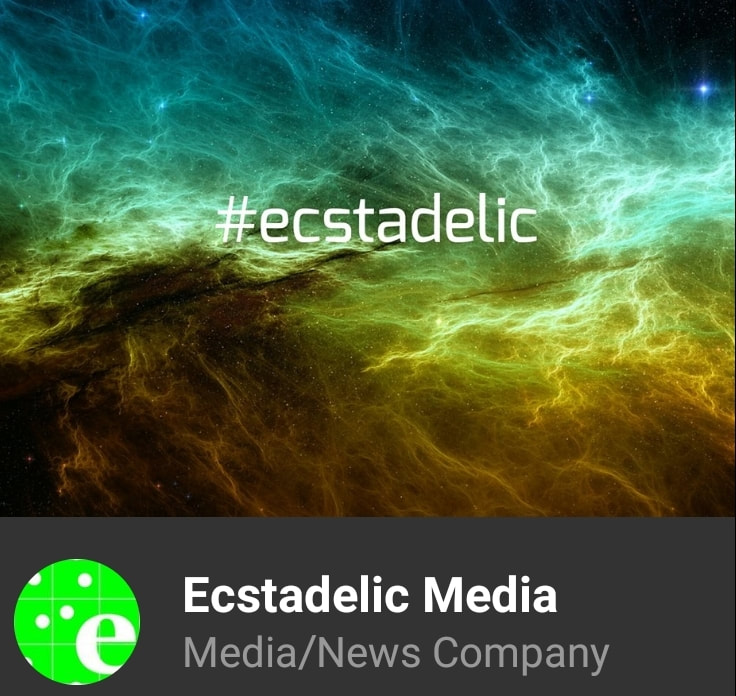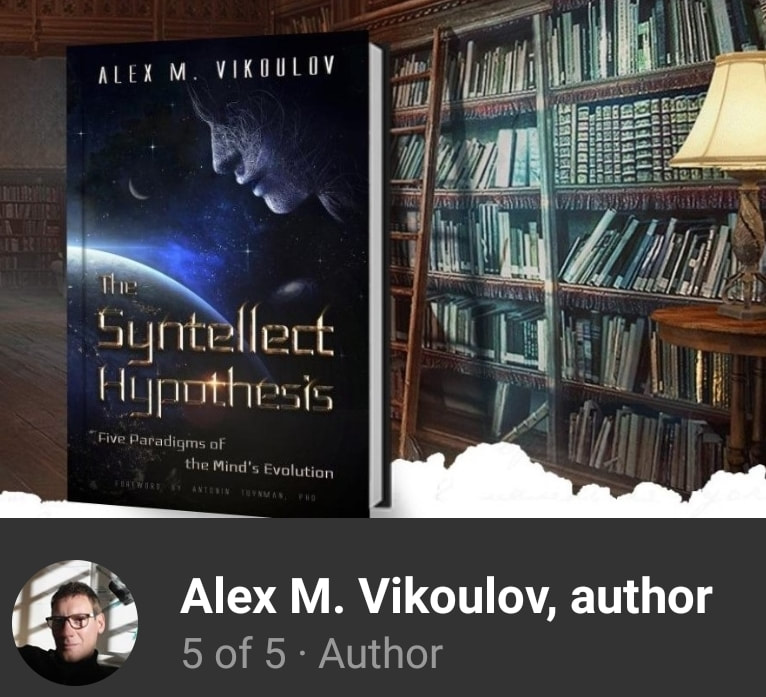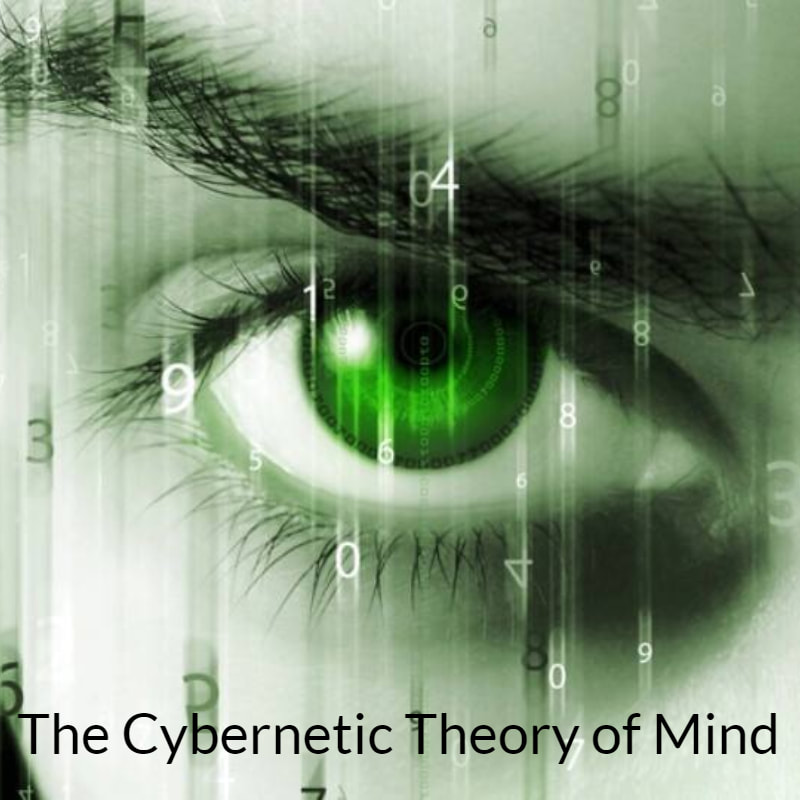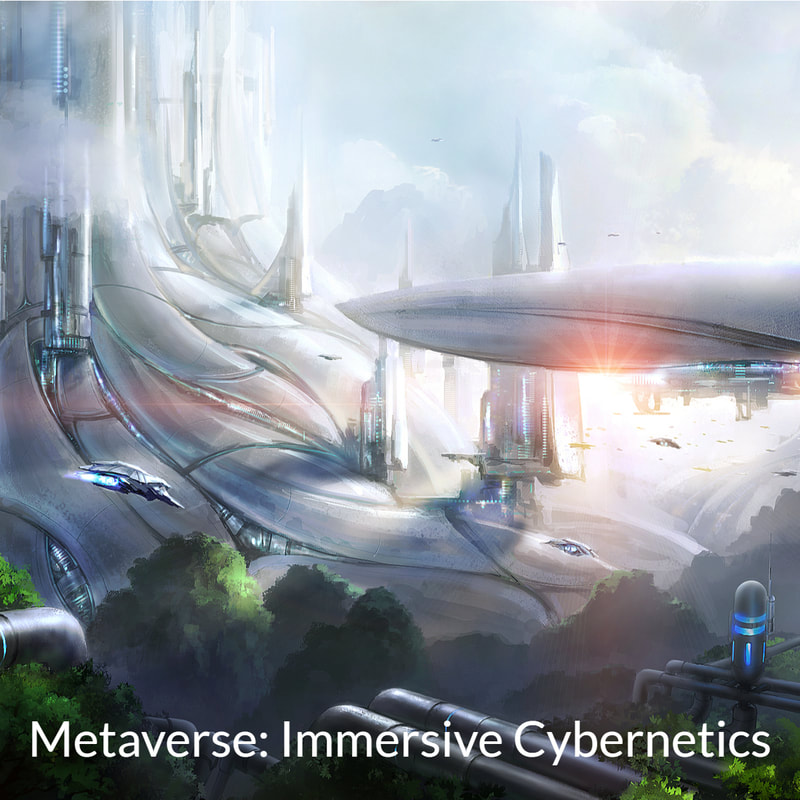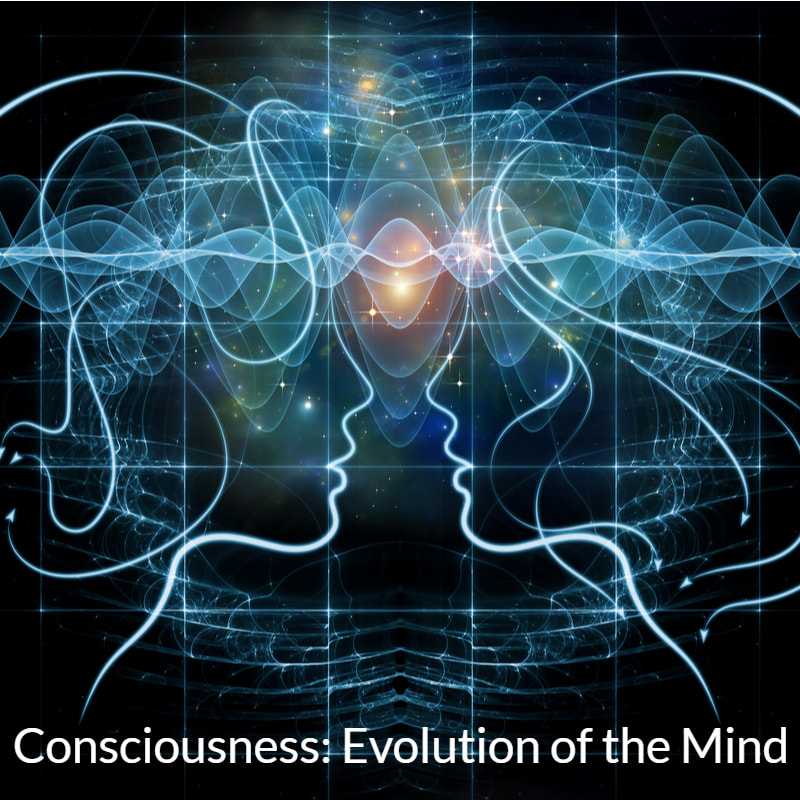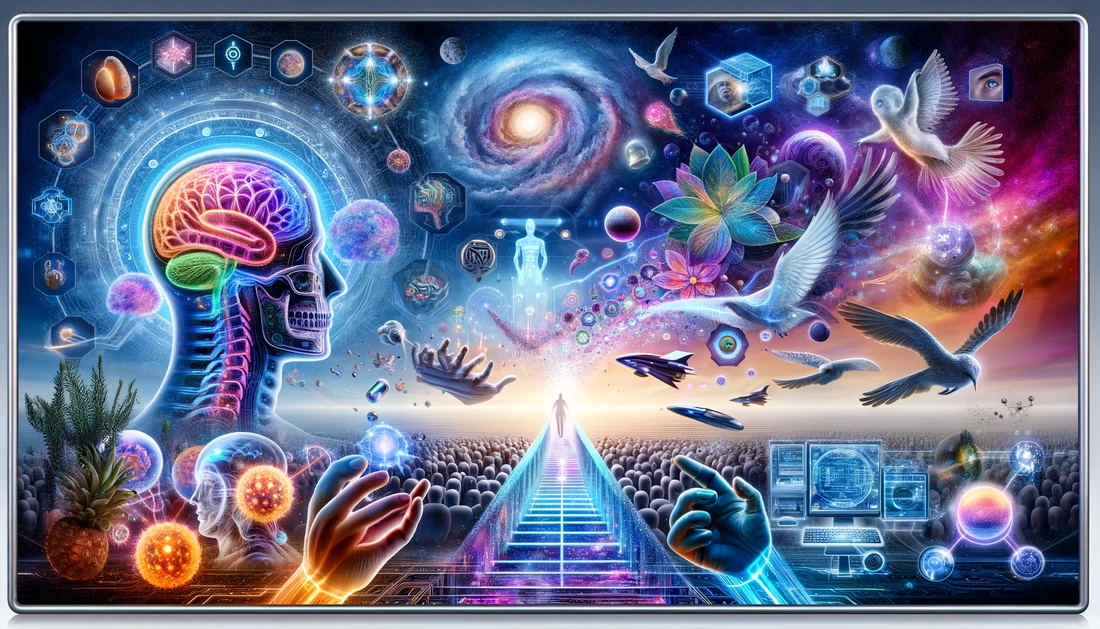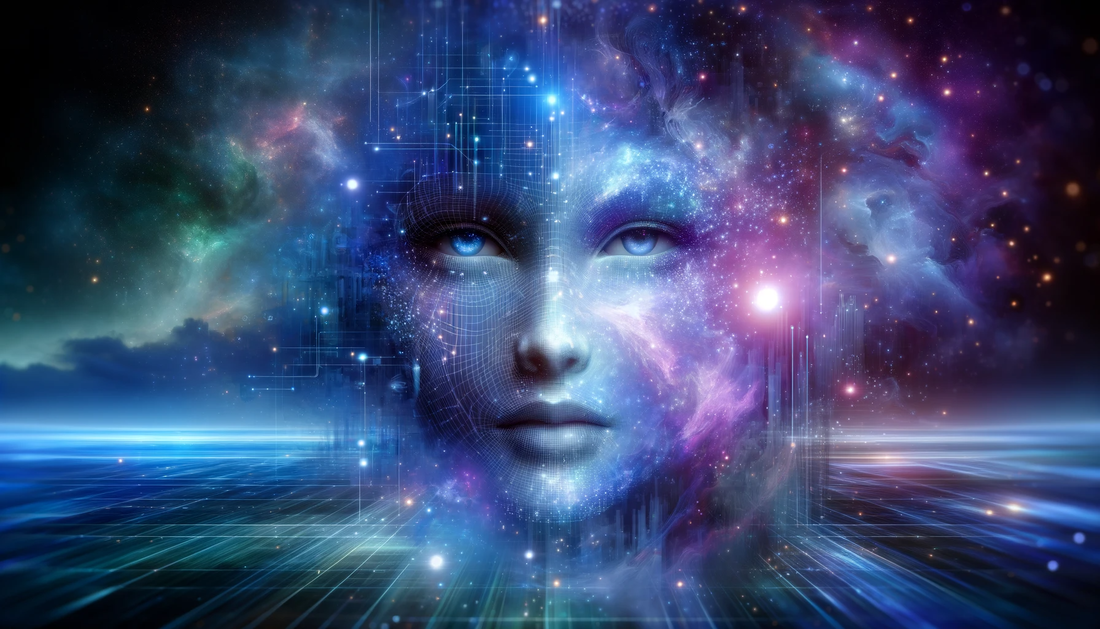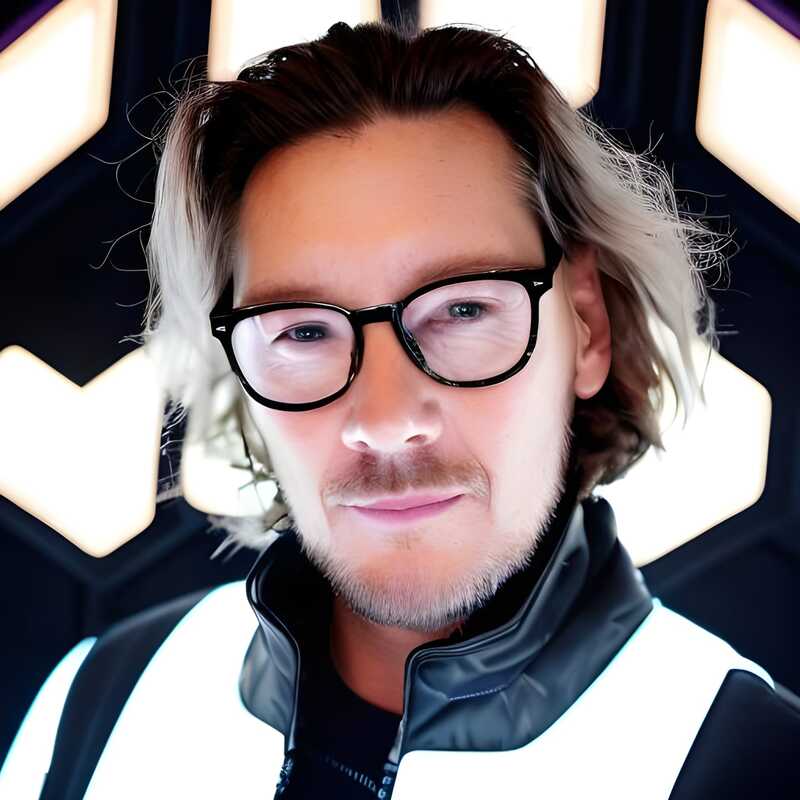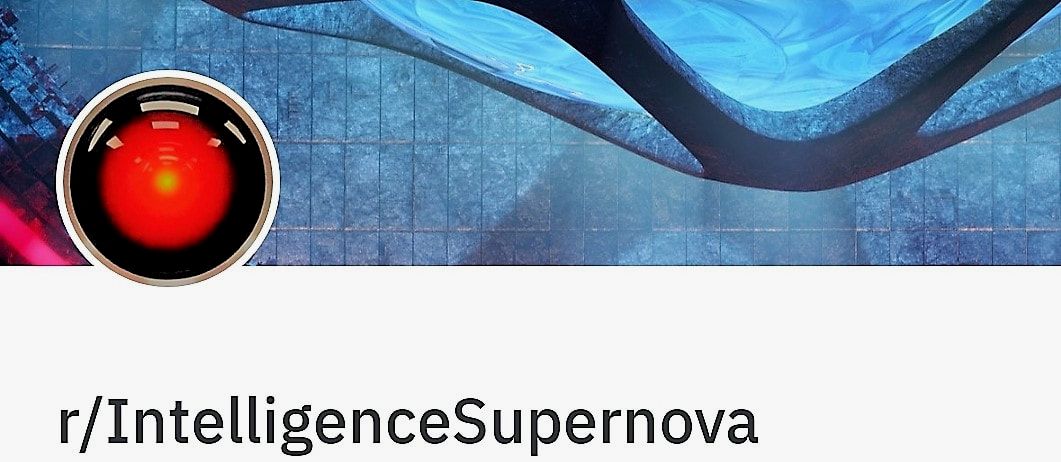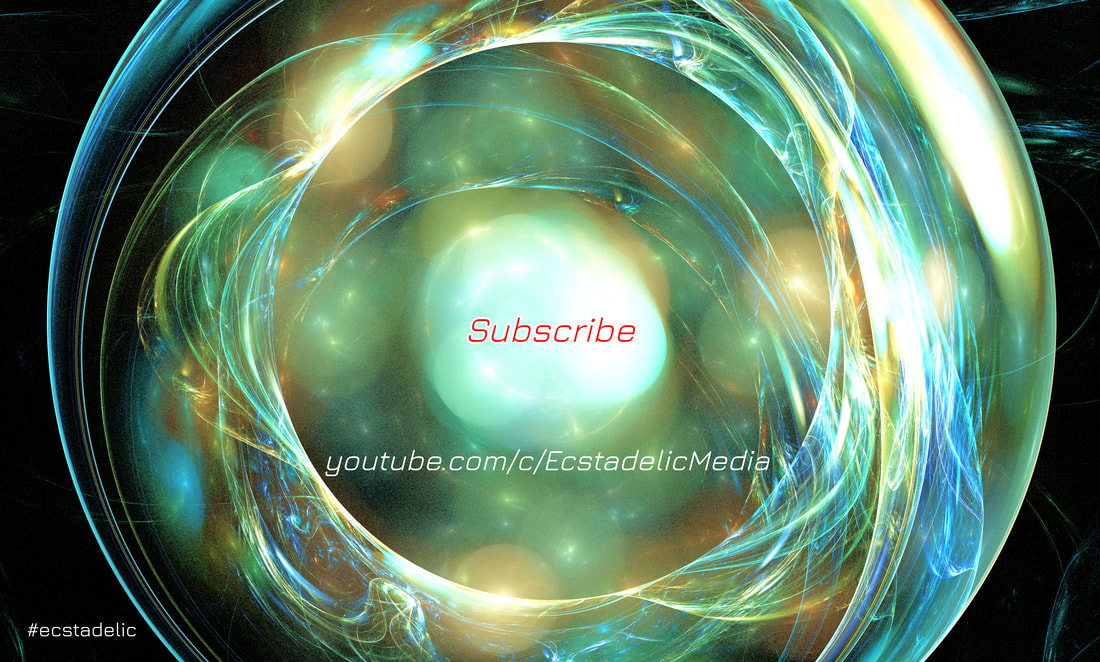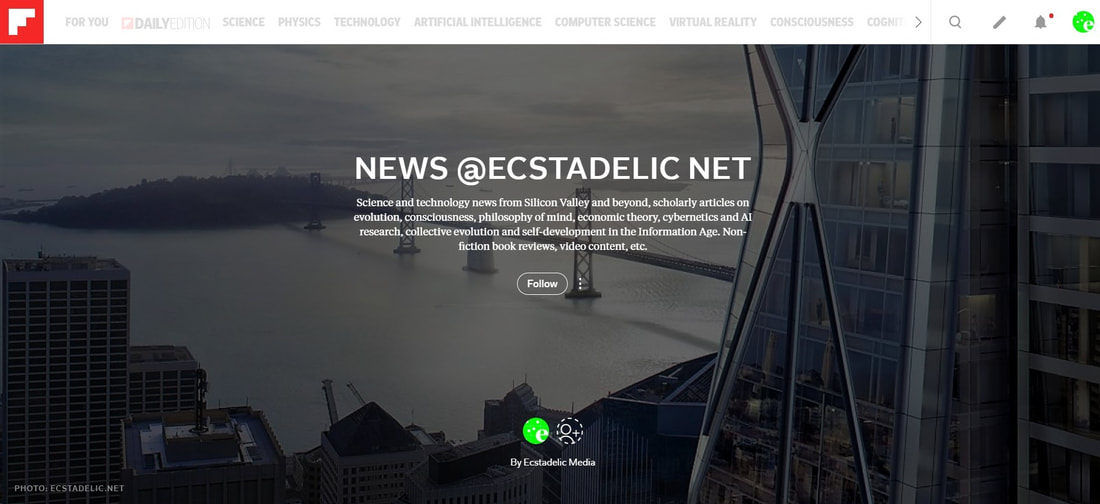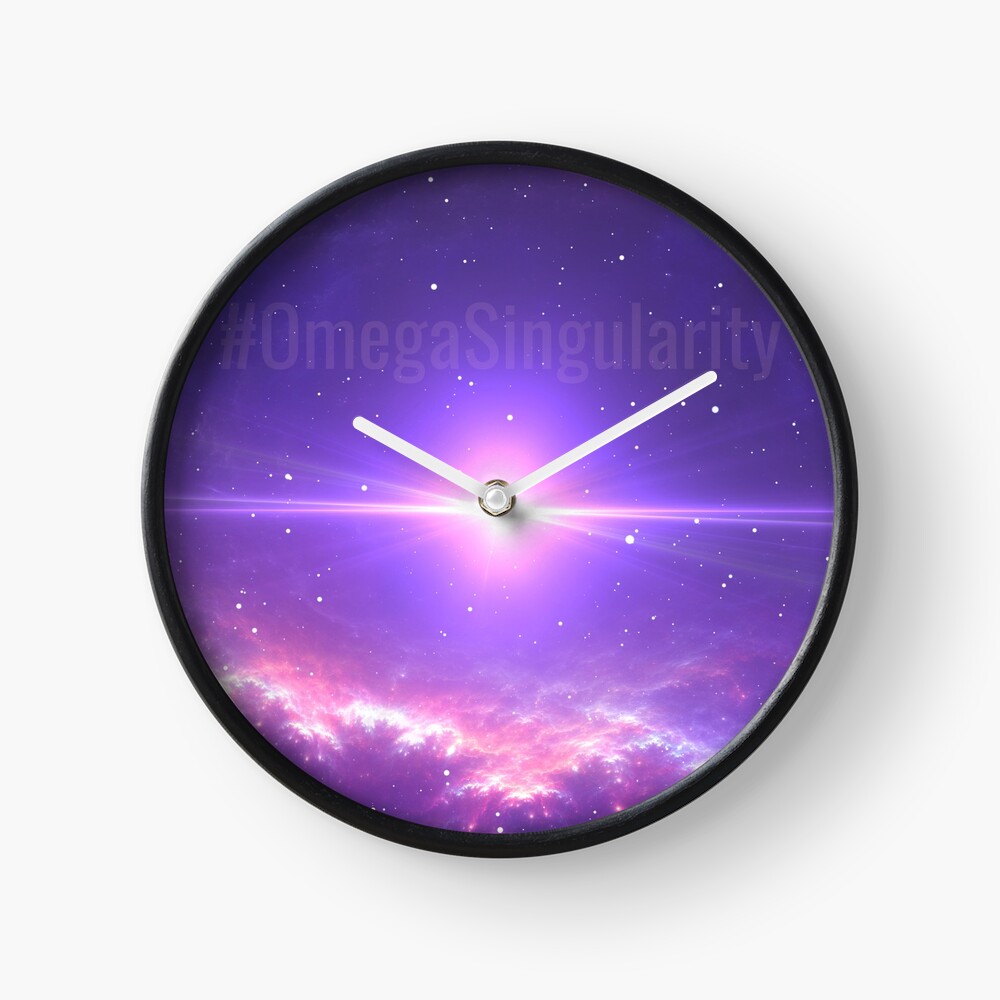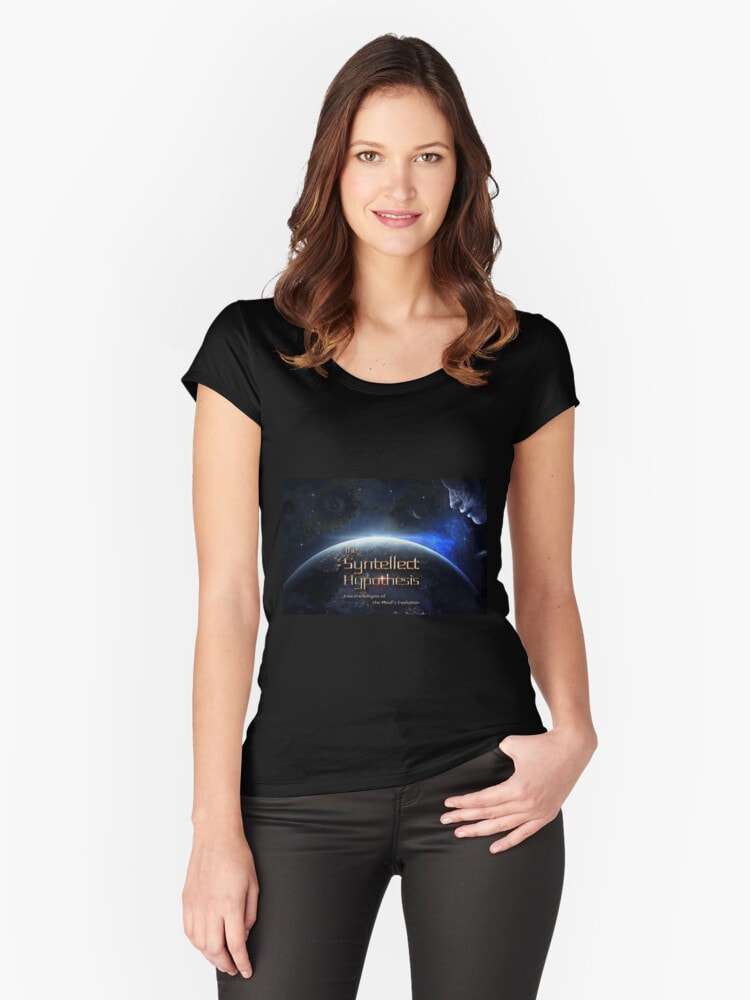|
by Alex M. Vikoulov Book by Alex M. Vikoulov, Synopsis* "Regard the physical world as made of information, with energy and matter as incidentals." -John A. Wheeler Everything, including energy, matter, space, time, and consciousness, is INFORMATION, or Code if you will. Many scientists now come to a consensus that information may be fundamental, since information patterns persist through dimensions and, it seems, is an evolving phenomenon. This is the synopsis of my new book "The Syntellect Hypothesis: Five Paradigms of the Mind's Evolution" where we will set to explore the conscious mind's journey through times and paradigms with the focus on what's most important to us as conscious beings -- OUR SUBJECTIVE EXPERIENCE. From Noogenesis to Apotheosis of the Universal Mind, this book will examine the five distinct evolutionary paradigms:
0 Comments
by Alex Vikoulov "All matter originates and exists only by virtue of a force which brings the particle of an atom to vibration and holds this most minute solar system of the atom together. We must assume behind this force the existence of a conscious and intelligent Mind. This Mind is the matrix of all matter.” -Max Planck This is abridged part of my essay “Is God the ultimate computer?” where we formulate the Digital Pantheism Argument, our existence as the fractals of cognitive architecture of "God." The previous part of essay could be summarized and reformulated into these three basic premises for further discourse in order to articulate the Digital Pantheism Argument: (1) Universality of Computation; (2) Evolutionary Emergence; (3) Universal Causal Diamond. Let’s reiterate the three foundational axioms before proceeding further: By Alex Vikoulov "The Universe begins to look more like a great thought than a great machine." -James Jeans
My prolonged fascination with Digital Philosophy led me to my own breathtaking discovery of this worldview of creation and of the Universe that allows to so elegantly reconcile science and theology, philosophy and spirituality, physics and metaphysics. This is an exclusive abridged excerpt from my book "The Syntellect Hypothesis: Five Paradigms of the Mind's Evolution" where we’ll further discuss the notion of digitalism, ongoing battle of ideologies revolving around God's existence, our role in this multi-layered digital reality, and the Omega Point cosmology. Previously, we have established that: by Alex Vikoulov "The world is a mirror of ourselves.” -Dayth Banger My favorite Greek philosopher Plato has left a great legacy in the series of written “Dialogues” which summarized parables which he had learned from his mentor, philosopher Socrates. One of the better known of these Dialogues is the “Allegory of the Cave.” In this allegory, people are chained from birth in a cave so that they can only see the shadows which are cast on the walls of the cave by a fire. To these people, the shadows represent the entirety of their existence — it is impossible for them to imagine a reality which consists of anything other than the blurry shadows on the wall. However, one prisoner escapes from the cave, goes out into the light of the sun and beholds true reality. When he tries to go back into the cave and tell the other captives the truth, he’s mocked as a madman. by Alex Vikoulov "Here I had tried a straightforward extrapolation of technology, and found myself precipitated over an abyss. It's a problem we face every time we consider the creation of intelligences greater than our own. When this happens, human history will have reached a kind of singularity – a place where extrapolation breaks down and new models must be applied – and the world will pass beyond our understanding." –Vernor Vinge As we proceed through the Cybernetic Singularity, many traditional trends of societal evolution will still hold, structures with higher survival abilities will persist, structures with higher growth abilities will spread, thus shaping the world. However, since nothing stable will be likely to persist, let alone spread, for long in the rapidly evolving environment, the main "survival mode" will be Self-Transcendence. This continual process of transcending the self (some would argue the self is an illusion anyway) will always result in the loss of original identity – serial metamorphosis, a series of "pseudo-deaths," and concurrent rebirths so to speak – albeit with "memories of the past identities preserved," i.e., continuity of consciousness, analogous to as if you are to compare your present self to your 5-year-old self. On a collective level, that would appear like a historically swift, metamorphic "pseudo-extinction" of Homo sapiens, as we are about to witness a radical departure from the conservative survival strategies of traditional human cultures, developed in almost-stagnant environments. Don't ascribe anthropomorphic qualities to our posthuman descendants even though they will be the future versions of ourselves. In the post-Singularity era, developmental trend will incrementally render the concept of rigid personal identity obsolete, the remnants of its meaning will migrate to functional system identities, methodological threads and evolutionary directions of the Syntellect. We may already notice the advent of superfluid "thread identity" by the growing importance of goals and self-transformation in our lives, compared to the "state-oriented" self-perception of our recent predecessors, and increasing interest in futurology, which takes the epistemological role of historical studies in transient times. Once we transcend our limited dimensionality, the biggest thrust forward from there on will be first contact and networking with alien syntellects. ... to continue reading the story: Tags: self-transcendence, transcendence, cybernetic singularity, collective intelligence, sentience, self-awareness, strong AI, Vernor Vinge, superintelligence, singularity, mind uploading, postbiological superintelligence, posthuman superintelligence, the Syntellect emergence, technological singularity, Intelligence Supernova, virtual world, virtual reality, VR experience, dimensionality, Space Age, Global Brain, global superorganism, alien syntellects, Syntellect incubator, multiversal fractality, conscious agent, human evolution, human condition, alien encounter, first contact, multiverse landscape, transcendent other, AI, AGI, artificial general intelligence, transhumanism, superlongevity, superwellbeing, cognitive enhancement, substrate-independent mind, digital mind, digital immortality, philosophy of mind, science of mind, evolution of consciousness, posthumanism, transcendentalism, neo-transcendentalism *Image Credit: Shutterstock About the Author: Alex Vikoulov is a Russian-American futurist, evolutionary cyberneticist, philosopher of mind, CEO/Editor-in-Chief of Ecstadelic Media Group, painter, essayist, media commentator, author of "The Syntellect Hypothesis: Five Paradigms of the Mind's Evolution," "The Origins of Us: Evolutionary Emergence and The Omega Point Cosmology," "The Physics of Time: D-Theory of Time & Temporal Mechanics," "The Intelligence Supernova: Essays on Cybernetic Transhumanism, The Simulation Singularity & The Syntellect Emergence," "Theology of Digital Physics: Phenomenal Consciousness, The Cosmic Self & The Pantheistic Interpretation of Our Holographic Reality," "NOOGENESIS: Computational Biology," "TECHNOCULTURE: The Rise of Man." Self-described neo-transcendentalist, cosmist, transhumanist singularitarian. Lives in Burlingame, California (San Francisco Bay Area). More Bio... Author Website: www.alexvikoulov.com e-mail: [email protected] by Alex Vikoulov "Two possibilities exist: either we are alone in the Universe or we are not. Both are equally terrifying." -Arthur C. Clarke
The coming Cybernetic Singularity could pave the way to rapid space colonization sometime by mid-century, however, not exactly how Hollywood movies depict -- fragile flesh-and-blood humans are unlikely to personally travel to other stars. Our postbiological descendants (AIs, uploads and hybrids), on the other hand, could roam the Universe on their tiny warp spaceships, via traversible wormholes, and colonize galaxies via self-replicating Von Neumann probes that would establish wormhole portals and communication with the core civilization. But what's even more exciting, First Contact and networking with alien syntellects becomes a clear possibility. by Alex Vikoulov “Nanotechnology has given us the tools…to play with the ultimate toy box of nature atoms and molecules. Everything is made from it…The possibilities to create new things appear endless.” -Horst Störmer
The nanotech field was arguably launched by Richard Feynman’s 1959 talk “There’s Plenty of Room at the Bottom.” As Feynman said then: "It is a staggeringly small world that is below...Why cannot we write the entire 24 volumes of the Encyclopedia Britannica on the head of a pin? " Eric Drexler’s 1987 book Engines of Creation popularized the notion of nanotech and the next tour de force in the field was his classic 1992 book Nanosystems, which laid out conceptual designs for a host of nanomachines, including nanocomputer switches, general-purpose molecular assemblers, and a fascinating variety of other good stuff. Today's nanotech mostly focuses on narrower nano-engineering than what Drexler envisioned, but it’s still in the process of building a platform and tools that will ultimately be useful for realizing Feynman’s and Drexler’s dreams. The emerging nanotech marks manufacturing and utilization of carbon nanotubes, which have multiple applications, from the relatively simple such as super-strong fabrics and fibers to potential components of more transformative nanosystems like nanocomputers, molecular assemblers, and nanobots connecting our brains to the cloud. What's next beyond nanotechnology? Here's how Wikipedia defines the term femtotechnology: "Hypothetical term used in reference to structuring of matter on the scale of a femtometer, which is 10^−15m. This is a smaller scale in comparison to nanotechnology and picotechnology which refer to 10^−9m and 10^−12m respectively." Hugo de Garis, Australian AI researcher, wrote a few years ago in Humanity Plus Magazine on the power of the femtotechnology: "If ever a femtotech comes into being, it will be a trillion trillion times more “performant” than nanotech, for the following obvious reason. In terms of component density, a femtoteched block of nucleons or quarks would be a million cubed times denser than a nanoteched block. Since the femtoteched components are a million times closer to each other than the nanoteched components, signals between them, traveling at the speed of light, would arrive a million times faster. The total performance per second of a unit volume of femtoteched matter would thus be a million times a million times a million = a trillion trillion = 10^24."* |
Categories
All
Recent Publications The Cybernetic Theory of Mind by Alex M. Vikoulov (2022): eBook Series The Syntellect Hypothesis: Five Paradigms of the Mind's Evolution by Alex M. Vikoulov (2020): eBook Paperback Hardcover Audiobook The Omega Singularity: Universal Mind & The Fractal Multiverse by Alex M. Vikoulov (2022): eBook THEOGENESIS: Transdimensional Propagation & Universal Expansion by Alex M. Vikoulov (2021): eBook The Cybernetic Singularity: The Syntellect Emergence by Alex M. Vikoulov (2021): eBook TECHNOCULTURE: The Rise of Man by Alex M. Vikoulov (2020) eBook NOOGENESIS: Computational Biology by Alex M. Vikoulov (2020): eBook The Ouroboros Code: Reality's Digital Alchemy Self-Simulation Bridging Science and Spirituality by Antonin Tuynman (2019) eBook Paperback The Science and Philosophy of Information by Alex M. Vikoulov (2019): eBook Series Theology of Digital Physics: Phenomenal Consciousness, The Cosmic Self & The Pantheistic Interpretation of Our Holographic Reality by Alex M. Vikoulov (2019) eBook The Intelligence Supernova: Essays on Cybernetic Transhumanism, The Simulation Singularity & The Syntellect Emergence by Alex M. Vikoulov (2019) eBook The Physics of Time: D-Theory of Time & Temporal Mechanics by Alex M. Vikoulov (2019): eBook The Origins of Us: Evolutionary Emergence and The Omega Point Cosmology by Alex M. Vikoulov (2019): eBook More Than An Algorithm: Exploring the gap between natural evolution and digitally computed artificial intelligence by Antonin Tuynman (2019): eBook Our Facebook Pages
A quote on the go"When I woke up one morning I got poetically epiphanized: To us, our dreams at night feel “oh so real” when inside them but they are what they are - dreams against the backdrop of daily reality. Our daily reality is like nightly dreams against the backdrop of the larger reality. This is something we all know deep down to be true... The question then becomes how to "lucidify" this dream of reality?"— Alex M. Vikoulov Public Forums Our Custom GPTs
Alex Vikoulov AGI (Premium*)
Be Part of Our Network! *Subscribe to Premium Access Make a Donation Syndicate Content Write a Paid Review Submit Your Article Submit Your Press Release Submit Your e-News Contact Us
|



